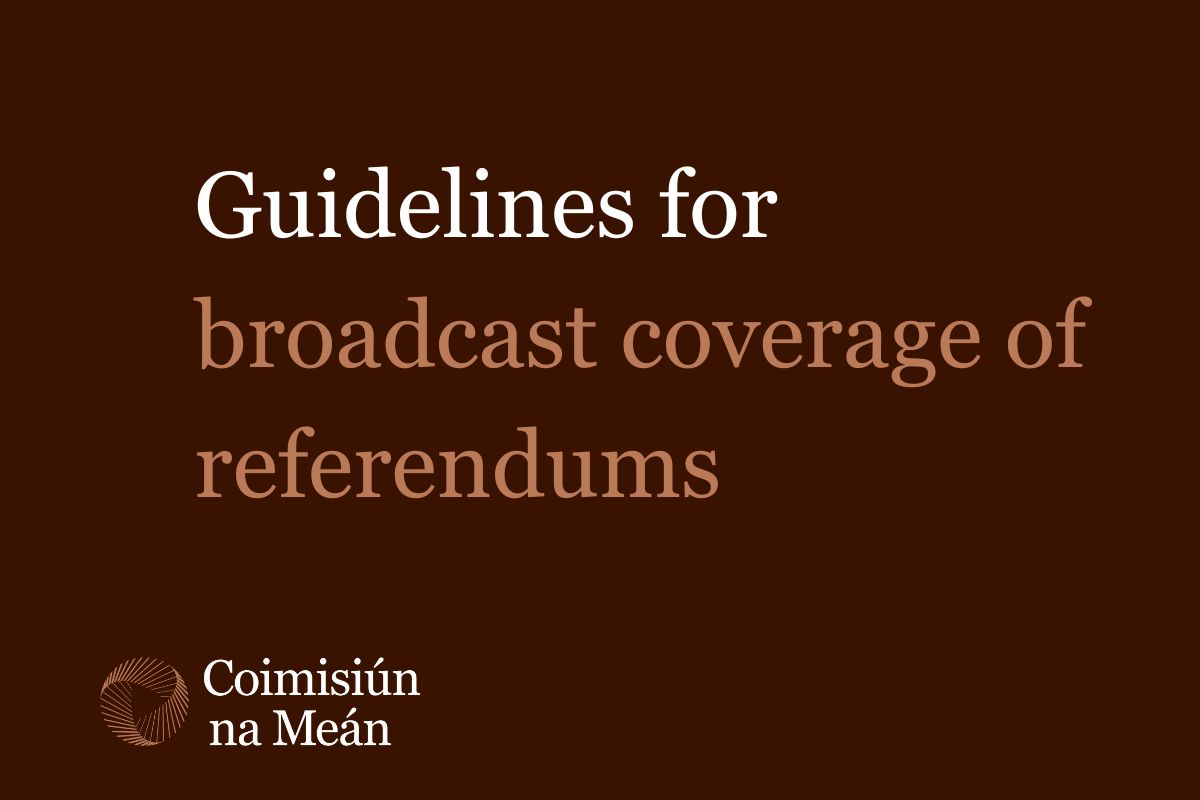
Coimisiún na Meán has today (14.02.24) published its Guidelines in Respect of Broadcast Coverage of Referendums. The guidelines are published in advance of the referendums on the 39th and 40th Amendments of the Constitution, scheduled to take place on 8th March next. The Guidelines come into immediate effect and apply to coverage of the referendums until the closing of polling stations on 8th March 2024.
The Guidelines have been developed further to the provisions of the Code of Fairness, Objectivity and Impartiality in News and Current Affairs and provide direction and advice to broadcasters as to how fairness, objectivity and impartiality can be achieved in their coverage of referendum campaigns.
Among the matters covered in the Guidelines are the various ways in which fairness, objectivity and impartiality can be achieved, the management of conflicts of interest, the prohibition on political advertising, and coverage of opinion polls. Other matters addressed include on-air contributions via social media, a prohibition on presenters encouraging listeners or viewers to vote in support of or against any particular outcome in the referendums, and the obligation to carry announcements made on behalf of An Coimisiún Toghcháin (the Electoral Commission).
The Guidelines also encourage broadcasters to include a range of voices and opinions in their coverage, including a mix of views representing social, gender and cultural diversity. As with previous guidelines, a moratorium on coverage will come into effect from 2pm on the day prior to voting and will end following the closure of polling stations on the day of the ballot.
Speaking about the publication of the Guidelines, Broadcasting Commissioner, Celene Craig said: “During the course of the referendum campaigns and right up to the closing of the polls on March 8th, broadcasters must ensure that coverage of the referendums is fair and equitable to all interests. The Guidelines published today include a strong emphasis on how fairness, objectivity and impartiality can be achieved, and how this is broader than a consideration of airtime for campaign groups.
“Coimisiún na Meán is keen to emphasise that this does not include a requirement for artificial balance. The Guidelines also emphasise that audiences may be better served by an approach to coverage that is not purely adversarial, and which places an emphasis on the issues in a referendum.”
- The Guidelines in Respect of Coverage of Referendums are available for download.
- The Code of Fairness, Objectivity and Impartiality is available to download.